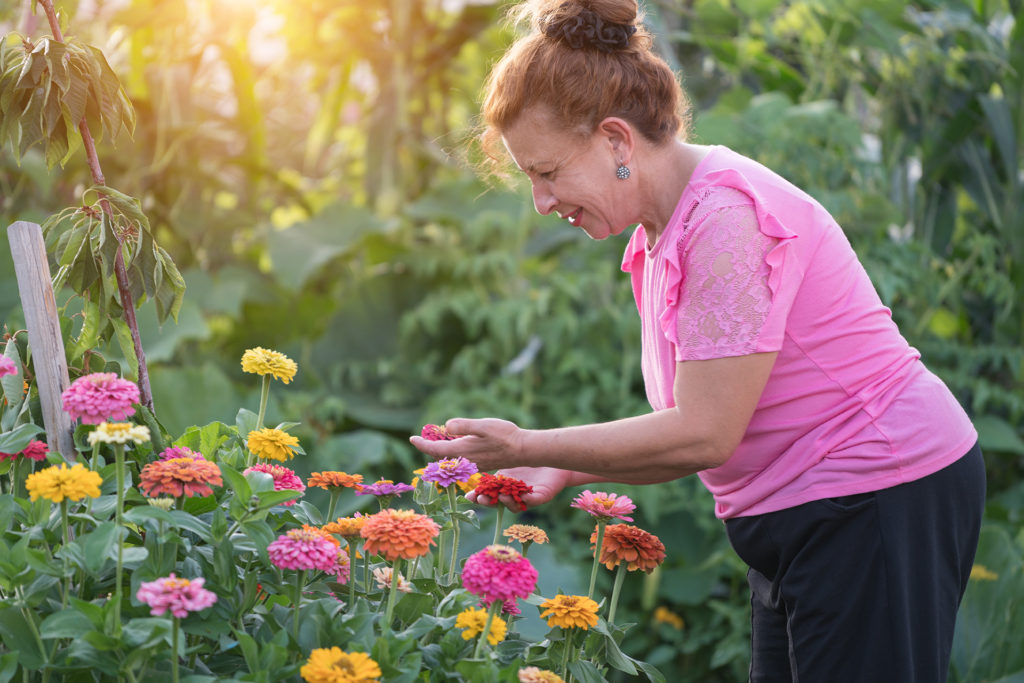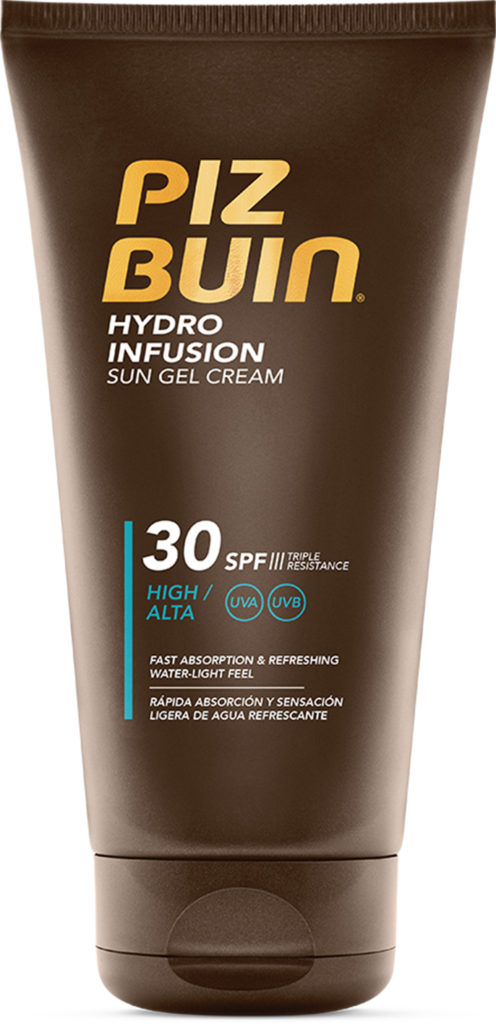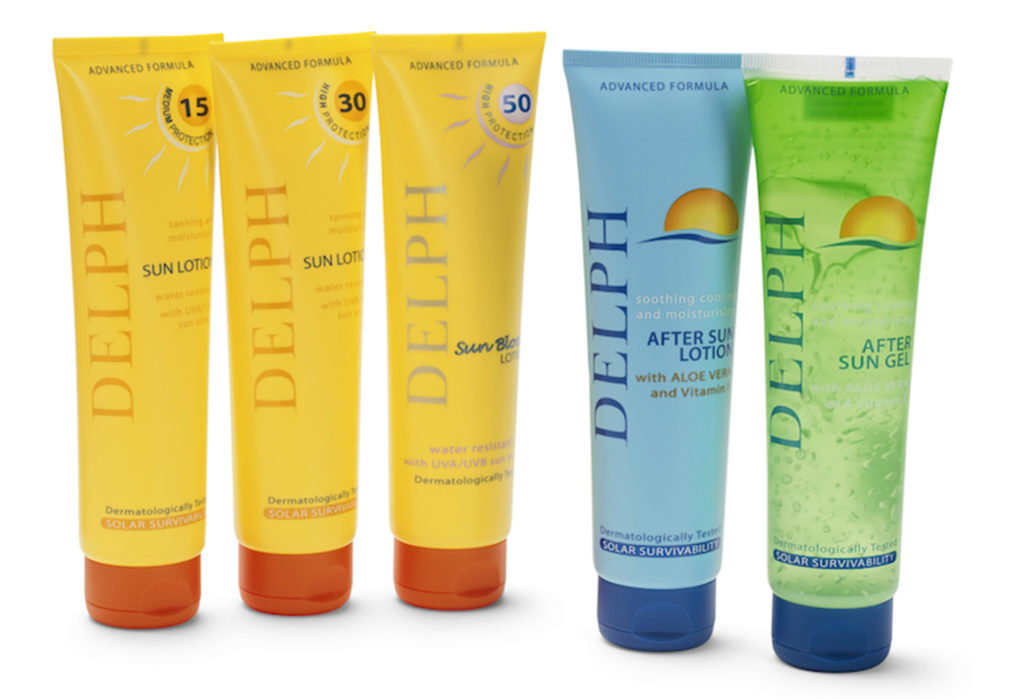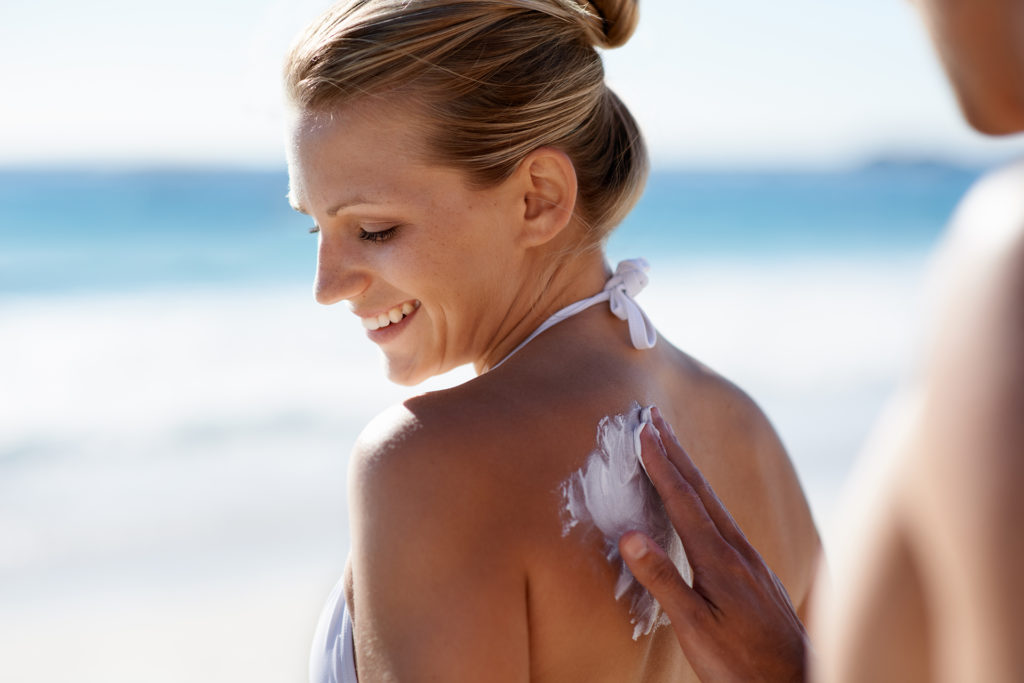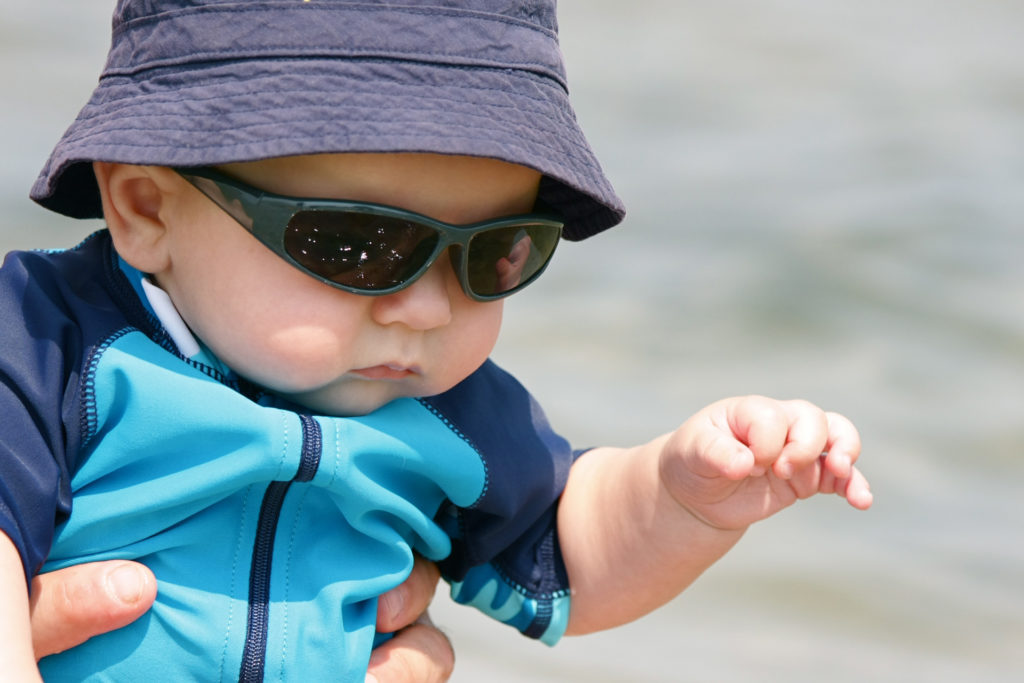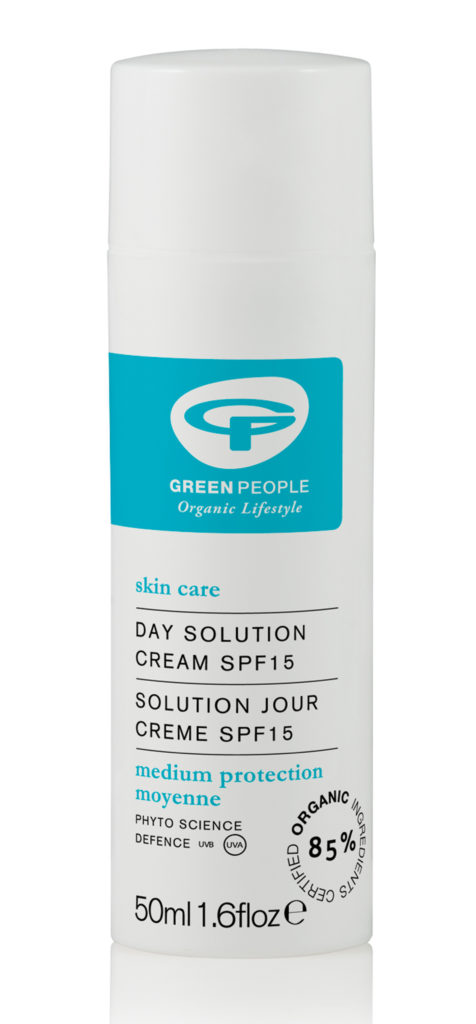Everything You Need To Know About SPFs And Sun Protection
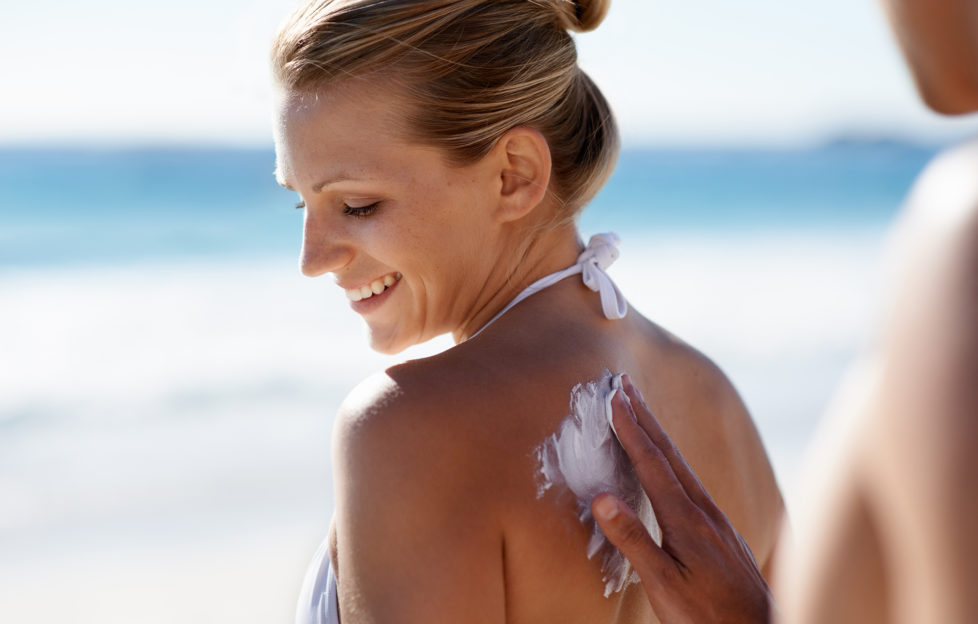
By Dr. Stephanie Munn, Bupa UK
1 What should I look for in a suntan cream as far as UVA/UVB is concerned?
Even if it’s cloudy, or you’re going to be inside for most of the day, make sure you’re wearing a broad-spectrum sunscreen that has both UVA and UVB protection. Both UVA and UVB rays can cause cancer. UVA rays penetrate the deepest, causing ageing of the skin and UVB rays are the most likely to cause sunburn and are linked to more aggressive forms of skin cancer As recommended by NICE (National Institute for Health and Care Excellence), choose a sunscreen that’s at least SPF 30.
2 Do I really need sun protection lotion when I’m sitting out in my garden in the UK?
It doesn’t have to be a warm and sunny day for burning to occur – even on cool and cloudy days in the UK you’re at risk of sunburn. You need to protect your skin as soon as the sun’s UV index reaches your individual burning point. For some people – those with light coloured hair and eyes – this burning point can be as low as UV index 3.
3 What sun protection factor number should I be taking with me for a holiday in Turkey? I take quite a good tan, but worry about skin cancer.
As in the UK, whilst you’re on holiday you should apply and regularly reapply an even, thick layer of sunscreen that includes at least SPF 30. Around two teaspoons of sunscreen is the ideal amount to cover your head, arms and neck. If you’re wearing a swimming costume, two tablespoons should cover your entire body. Remember that you can rub, sweat and wash off sunscreen so it’s important to remember to top it up at least every two hours throughout the day.
4 Will using SPF 15 stop me developing a tan?
What we call ‘tanning’ – a darkening of our natural skin colour – actually occurs as a result of your body producing more melanin, in an attempt to protect your skin from sun damage. Wearing sunscreen doesn’t stop your skin from producing melanin, but, if applied correctly, choosing a sunscreen with SPF 15 and UVA/UVB protection extends your natural burning time by at least fifteen times longer. SPF 15 sunscreen may not be enough to protect your skin from burning if you’re spending lots of time outdoors, so it’s advisable to choose a sunscreen with a higher protection factor, if applicable.
5 Years ago I remember using SPF 6 on holiday, but all I’m seeing in the shops now is SPF 15 and 30. Why is that?
As time’s progressed, so has our knowledge of cancers and how they can be avoided. As such, society has realised the importance of skin cancer and, as a result, the market is responding accordingly with sunscreens containing a higher SPF.
6 I always thought that burning first was the way to get a great tan. Is this wrong?
There’s no healthy or safe way to develop a tan. Those with paler skin types may only tan after their skin goes pink in the sun first. If your skin goes pink, this means that it’s burnt and your risk of developing skin cancer increases. Generally speaking, those with darker skin have a lower chance of developing skin cancer, as they can tan without their skin turning pink, first.
To avoid your risk of developing skin cancer, you should always protect your skin by applying SPF 30+ sunscreen and covering up during peak sunlight hours to avoid any form of burning.
7 I often burned as a child in the sun and worry about skin cancer now. Should I be going out in the sun at all?
According to research carried out by Brigham and Women’s Hospital and Harvard Medical School, burning your skin in your younger years can significantly increase your chance of developing skin cancer in later life. However, this doesn’t mean that you should avoid the sun altogether, as the sun helps us to feel better and make vitamin D. Regardless of whether you should be especially careful to ensure that anytime the UV Index is greater than 3, you’re suitably covered with both sunscreen and protective clothing. Additionally, make sure that you regularly examine your skin and speak to your GP if you notice any changes, such as a change in a mole’s appearance, or areas that scab or bleed and don’t heal within a few weeks.
8 My husband loves his tanning oils and quite happily bakes in the sun. Are oils bad for you if they have a SPF number?
Although tanning oils tend to be thicker, they tend to take a longer amount of time for the skin to absorb, compared to sunscreen creams, there’s an increased chance of them rubbing off and not providing any SPF.
9 What sun protection factor should I be using on my baby grandson this summer? Is 50 too high?
If your grandson is less than six months old, make sure that you keep him out of any direct sunlight and that he’s well-covered with protective clothing, a brimmed hat and sunglasses. Babies are especially sensitive to the sun, so it’s important to make sure that he’s covered, but doesn’t overheat. Sunscreen is fine to use on babies that are six months old and above. Any sunscreen with an SPF of 30 or above is sufficient – applying one that contains zinc oxide of titanium oxide helps to avoid any irritation to their skin and eyes. Lastly, ensure that it’s applied liberally and that they’re not exposed during the sun’s peak hours (between 10am and 3pm).
10 Does wearing sun protection factor 15 mean I’m losing out on vitamin D from sitting in the sunshine?
Vitamin D is gained when your skin absorbs UVB rays found in sunlight. However, using a sunscreen with SPF 15 won’t completely block all of the sun’s light, meaning that you’re still somewhat exposed to UVB rays, which your skin will absorb and then make vitamin D. As always, ensure that you take the necessary precautions to protect your skin if you expect to be outdoors for sustained periods and/or if your skin’s especially sensitive to UV.


